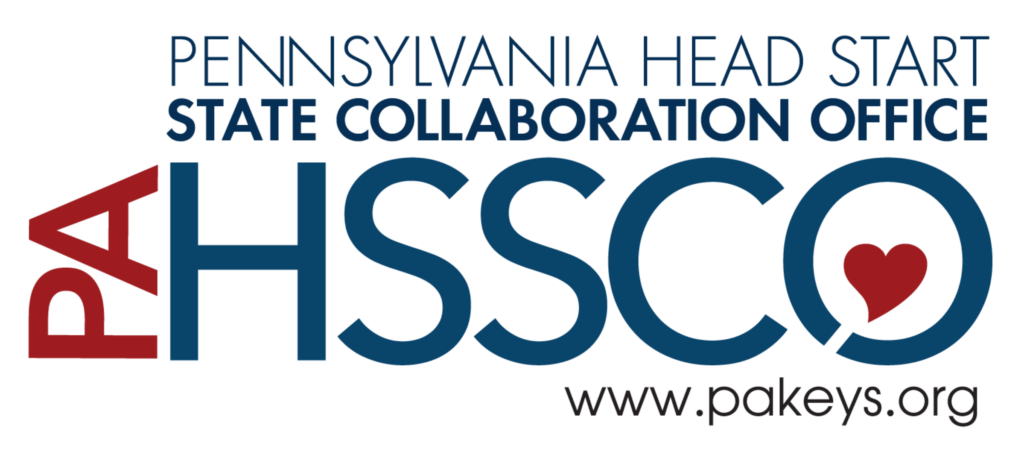 Created in 2007 by the Pennsylvania Office of Child Development and Early Learning (OCDEL), The Pennsylvania Key implements the work and supports the policies developed and managed by OCDEL. Learn More. >
Created in 2007 by the Pennsylvania Office of Child Development and Early Learning (OCDEL), The Pennsylvania Key implements the work and supports the policies developed and managed by OCDEL. Learn More. >
The Pennsylvania Head Start State Collaboration Office (PA HSSCO) is located at the Pennsylvania Key in Harrisburg. HSSCO is funded federally by the Office of Head Start in a grant to the PA Department of Human Services, Office of Child Development and Early Learning (OCDEL).
The Head Start State Collaboration Offices (HSSCOs) exist “to facilitate collaboration among Head Start agencies and entities that carry out activities designed to benefit low income children from birth to school entry and their families.” They provide a structure and a process for OHS to work with State agencies and local entities to leverage their common interests around young children and their families to formulate, implement, and improve state and local policy and practice. To be effective, the HSSCO director must hold a full-time position of sufficient authority and access to ensure collaboration is effective and involves a range of State agencies.
In addition to the Office of Head Start goals, the PA Head Start State Collaboration Office works to create a visible partnership at the state level to support the development of multi-agency and public/private partnerships. These partnerships are intended to:
The Pennsylvania Head Start Association (PHSA) and the PA HSSCO work in partnership to further their collective goals. The Pennsylvania Head Start Association is a non-profit organization actively involved in improving the lives of families and children, particularly those with low-income.
PHSA functions as an advocacy organization for Head Start programs, families, staff, and administrators in Pennsylvania. Leadership from the PA HSSCO and PHSA meet regularly in a variety of settings in order to keep lines of communication flowing in a positive direction and developing strategies to facilitate the involvement of Head Start in state and local policies, plans, processes, and decisions affecting low-income children and families.
In addition to PHSA, the PA HSSCO also maintains active communication and coordinates its activities with those sponsored by the ACF Region III Head Start office, particularly in conjunction with staff members from ICF Caliber who offer support to local Head Start grantees. Staff members from the PA HSSCO, ICF Caliber, PHSA, and the regional office meet three times per year to discuss and strategize coordinated efforts of support for Head Start grantees and their partners.
Tracy Duarte
tradua@pakeys.org
814-327-3263